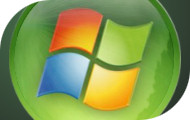
Amazon, where being gay makes you invisible
What's being called a "glitch" on Amazon.com has exclusively affected books dealing with gay and lesbian themes.
On one side, Amazon's Kindle 2 is the central element in the civil rights conflict between authors and those with reading disabilities. On the other side, Amazon.com is now accused of de-ranking and re-classifying content as "adult literature" simply because it contains homosexual themes or characters. Specifically, the complaint is that listings for some books with homosexual content are not displaying comparative sales rankings.

IE8 automatic update option likely to begin next week
In a heads-up message on the company's IE blog over the Easter weekend, Microsoft Internet Explorer 8 lead program manager Eric Hebenstreit warned users that as soon as next week, some Windows users will be automatically given the option of downloading IE8. It will not be a massive land rush, and as Hebenstreit repeated, the company's new Web browser will not automatically install itself.
"IE8 will not automatically install on machines," the program manager wrote, emphasizing what will be Microsoft's general policy in this new and more careful era of interoperability. "Users must opt-in to install IE8."

PMP hunters: On the lookout for a new 'Zune HD'
It's safe to say that Zune team "senior partner" Brian Seitz's little message was a reiteration of what we already knew, since there was never any announcement that Microsoft was discontinuing it's line of portable media players. But what a way to set the rumor mill churning! That tweet successfully reminded us that we still don't know the most important things about the next Zune: when we'll see it this year, what sort of functions it will have, what it is going to look like, how much storage it will offer, and how much it will cost.
On Friday, a series of promotional shots turned up that show the "Zune HD," suggesting at least that the next generation of the device is going to be metallic instead of plastic, and offer a velocity sensor that will shift the screen to portrait/landscape mode.

Too easy: A common cross-site scripting technique tangles Twitter
A self-proclaimed 17-year-old whose identity hasn't been particularly confirmed -- so therefore, neither has his or her age -- has taken responsibility for deploying cross-site scripting code through Twitter. That code, embedded in its users' profiles and masked to look like ordinary hyperlinks, resulted in messages being 'tweeted' through those users without their knowledge. Those tweets, when their links were followed, resulted in the same code being injected into the followers' profiles.
It sounds sophisticated, especially when it's being explained by a novice TV news anchor. In fact, the concept itself is something that is easily Googled, and example code similar to that created by the fellow calling himself "mikeyy" is readily available.

Novell rolls out its Service-Driven Data Center initiative
An offshoot of its Linux and open source software activities, Novell's new Service-Driven Data Center initiative revolves around three components: SUSE Enterprise Linux Server (SLES) 11, PlateSpin Workload Management solutions, and Novell Business Service Management tools.
Announced at the Open Source Business Conference (OSBC) last month, SLES 11 features data center enhancements such as the Xen 3.1.1 hypervisor, for virtualization; a new Swap over NFS capability for remote storage; and new control groups and CPUset features for more fine-grained management of CPU, memory, storage, and networking resources.
YouTube + Universal = Vevo
Another day, another arbitrarily-named video service.
Though Vevo is a name that could very easily be lost among the likes of Veoh and TiVo, the soon-to-be launched music video site has backers that are far from forgettable: Google and Vivendi, or, more specifically, YouTube and Universal Music Group.

Analyst Roger Kay takes a cue from the NAB, with the 'Mac Tax'
It should be no surprise, especially to long-time Mac users, that noted analyst Roger L. Kay, currently with Endpoint Technologies, is a supporter of the Windows "ecosystem." His opinions with regard to Windows are very much on the record, and he and I have often joined together with our colleagues, in brisk, lively, but fair discussions about the relative value of software and hardware on different platforms.
So frankly, Kay's latest white paper (PDF available here) which is a cost examination for home users planning complete at-home networks on Windows vs. Mac platforms (which Microsoft admits to having sponsored), comes to conclusions which should be no surprise to anyone on two fronts: First, Kay illustrates how much more individuals are likely to pay for Apple versus brand-name equipment from suppliers such as Dell and HP. Second, Kay takes Apple to task for charging a premium, and that he's done so isn't news either.

Google's Street View vehicle trounced by law of physics
Two wrongs don't make a right, but three rights make a left -- and, sometimes, two rights make a wrong. Take, for instance, Google's Street View function, well-liked by the uncertain motorist. Take, also, the idea of focused concentration on the road, a very good idea for drivers. Unfortunately, those two good ideas didn't combine so well for a Street View photo van in Pittsburgh.
As noted by Gawker and displayed by Google, a recent pass by the vehicle not too far from the baseball stadium was going well -- sunny day, everything's A-OK -- until the pole-borne camera attempted to occupy the same space as a low bridge overhead. The aftermath is visible online; not so useful for mapping purposes, but a nice warning as to how not to go about the journey.

Time Warner Cable responds to bandwidth cap complaints with price cap plan
In a statement this morning, Time Warner COO Landel Hobbs announced a $150-per-month pricing tier for high volume users, which he says is meant to stem user complaints over Time Warner's tests of capped bandwidth usage.
"We've heard the passionate feedback and we've taken action to address our customers' concerns," according to Hobbs.

Another round of AnyDVD improvements cracks more BD+ discs
Download AnyDVD HD 6.5.4.0 from Fileforum now.
In what's becoming a monthly affair for Slysoft, the makers of the DVD and Blu-ray backup disc system AnyDVD have released another update, this time with the capability to back up even more discs with the more sophisticated BD+ protection scheme.

Live Labs will be a little less live, as Lindsay moves to RIM
Restructuring is a process that a great many companies, both big and small, are going through in recent days. But Microsoft isn't accustomed to being one of those companies that shares its pain with its users -- case in point, the 2006 announcement of Windows Vista's delay, which was announced to the public as being "on track," in an unscheduled "road map update."
The sad fact this morning is that Live Labs, the Microsoft project responsible for one of the most innovative promotions in all of software this year -- the synthesizing of hundreds of simultaneous photographs of Pres. Obama's inauguration -- is being downsized. This morning's announcement from Microsoft was an effort to say it's not painful and it doesn't mean too much and everything's fine, which in and of itself is an indicator that it's not.

Silicon Valley phone and Internet service down, sabotage suspected
Service to Verizon, AT&T, and Sprint customers in the southern San Francisco Bay area was lost today in an incident being blamed on sabotage. Phone and Internet access went down on Thursday morning when four underground fiberoptic cables in San Jose and two cables in San Carlos, California were cut.
The outage also disrupted 911 emergency services. NETCOM, the dispatch center for local fire and policies agencies, has been able to receive 911 calls placed from landline phones today, but not from cell phones, according to the Mercury News. Police said they are investigating how the cables were cut. Service was expected to be fully restored by this evening. A smaller Comcast outage impacting 4,500 customers in San Jose started at around 1:00 pm PDT today.

EU to debate whether the Internet has outmoded public broadcasting
In what could be a long, but fundamental, rethinking of the role governments play in subsidizing the public dissemination of information throughout Europe, the EU Parliament will begin considering a possible redrafting of regulations passed in 2001 regarding the role of public broadcasters -- which in Europe means the corporations subsidized by taxes or licenses rather than advertising. At issue is a new question brought about by the evolution of the Internet: As long as private entities are spending billions to make broadband and wireless information services available, why should public broadcasters get all the breaks and be subsidized to compete on the same level?
"It must be noted that commercial broadcasters, of whom a number are subject to public service requirements, also play a significant role in achieving the objectives of the Amsterdam Protocol to the extent that they contribute to pluralism, enrich cultural and political debate and widen the choice of programmes," reads the latest draft of an EU commission report (PDF available here). That report calls for public comment on the role of public broadcasters' subsidies, during a period slated to begin in July.

Protesters confront Author's Guild over Kindle text-to-speech
By taking Amazon to task over the text-to-speech function of the Kindle 2, the Author's Guild has put itself in an undesirable position. Whereas the feature was originally open for use on any text contained within the device, the Author's Guild is now pressuring Amazon into letting publishers decide on an individual basis whether a book should be enabled with "voice performance" abilities.
At the end of March, twenty groups representing visually and cognitively impaired individuals, such as the American Council of the Blind, the International Dyslexia Association, and the National Center for Learning Disabilities, joined together and formed the Reading Rights Coalition to oppose the action of the Author's Guild.

Will Windows XP keep ruling the netbook?
Since the shipment last year of the earliest netbooks, Linux has fallen drastically behind Windows XP, according to new research by two industry analyst groups, Ovum and the NPD Group. Meanwhile, some people are touting both Windows 7 and the Android variant of Linux as future replacements of sorts for the existing netbook operating systems.
Specifically, XP's share of netbook units shipped soared from less than 10% in the first half of 2008 to 96% as of February 2009, according to data released this week by NPD Retail Tracking Service.



